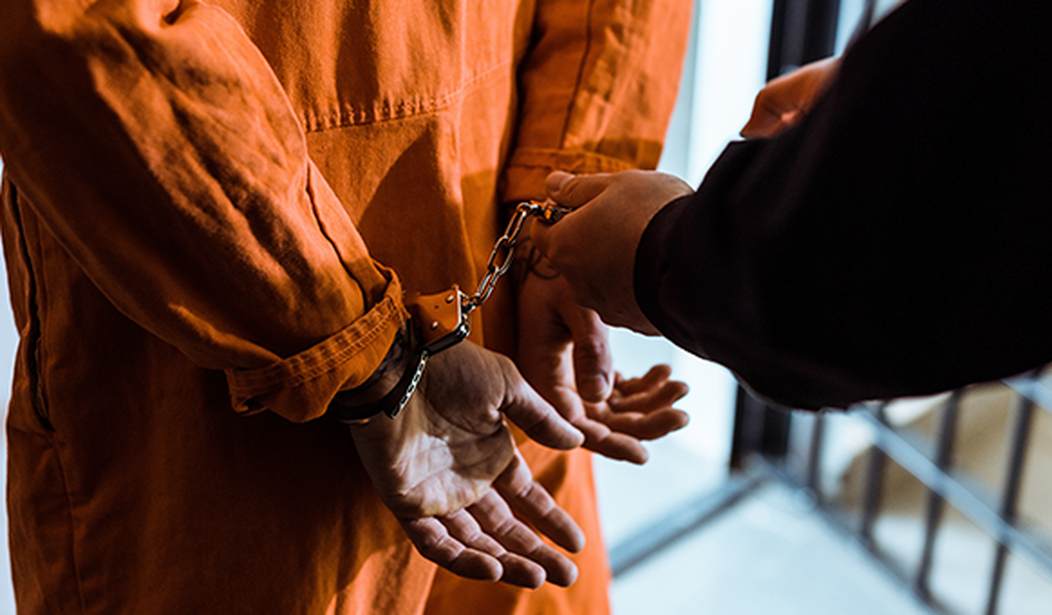One of the fundamental tenets of the gun control ideology is the fairy tale belief that, with the right set of laws and limitations on the Second Amendment in place, we can actually prevent all violent actors, murderous psychopaths, hardened criminals, domestic abusers, thrill killers, and anyone else who has the desire to end innocent human lives from being able to carry out their homicidal ambitions (at least with a firearm). If only the wingnut ammosexuals and the gun lobby would shut up long enough for Congress to pass “commonsense gun safety” regulations, we wouldn’t ever have to read another story about a teen opening fire on his classmates, or a young mom being gunned down by some idiot firing blindly out the window of a moving car in hopes of hitting a couple of rival gang members.
I am sure that fantasy is a comfort to some, but the cold, hard reality of the world that we live in is that you can despise and even criminalize something’s very existence, but banning it doesn’t make it go away.
This point was hammered home to me today when I stumbled across a story for our “Good Deed of the Day” segment on Bearing Arms’ Cam & Co; a corrections officer in Louisville, Kentucky who helped to save the lives of three inmates in the span of about an hour the other night.
Officer Ivan Sample, who is nearing his fifth year working at the jail, encountered several emergencies during one of his shifts last week. Sample said he knows danger is always lurking but admitted he doesn’t always watch his back.
“It’s always in the back of my head, but I just don’t pay any attention if there’s any type of emergency,” he said. “I’m going up in there regardless.”
Sample said the incidents started with two people who had overdosed in a dorm. He said the inmates were unresponsive, so he performed CPR and used Narcan.
“It was about a good 10-15 minutes before we got him back,” Sample said.
At the same time, another officer was working on the other inmate who had overdosed.
“This particular one didn’t even have a pulse, and he was blue around the lips,” Sample said. “As I was doing CPR, I was telling this individual, ‘You’re not gonna die. You’re not gonna die, not on my shift, not in this jail.'”
Both inmates eventually started breathing again and were rushed to the hospital.
As soon as that emergency ended, Sample rushed to respond to an inmate who had tried to hang himself with a bedsheet (that inmate also survived, thankfully).
The story went on to say that Sample actually saved five inmates in a two-week period and is rightfully going to be recognized by the Louisville Metro Council later this month. He sounds like the kind of guy we want working in our corrections system, and I’m glad that I could help shine a spotlight on his dedication to the job and his recognition of the humanity of the inmates behind bars.
Having said that, I was also really struck by the fact that the overdose of two inmates wasn’t seen as anything shocking, either by Sample or the news station who reported on his lifesaving efforts. I did a quick news search to see if I could find any other overdoses at the jail and got a flurry of hits reporting on over a dozen overdoses in one day back in September that ended up with five female inmates hospitalized, but I also found this story from Louisville’s NBC affiliate that ran about a week later.
A former LMDC corrections officer, Yvette Sheets, told WAVE 3 News she quit after a couple of weeks because she felt her morals were being compromised. Sheets says sheintercepted three notes between inmates in which they talked about buying and selling drugs, including “orange pills” and “ice cream,” which both sold for $100 each.
Sheets said she reported the notes and a bag of white powder to her superiors but was allegedly told that they would not be performing a shakedown to eliminate the drugs.
… Louisville Corrections Fraternal Order of Police Lodge 77 President Daniel Johnson said he’s afraid an inmate will die from the number of drugs inside the jail. He said things got dangerously close for four inmates that overdosed last week.
“Those people that were found unresponsive were not breathing, they didn’t have a heartbeat,” Johnson said. “They were blue in the face. We brought those people back to life.”
There’s a lot of fingerpointing about who to blame for this in the story, but one of the chief complaints seems to be that staffing levels are too low, which is making it difficult to properly screen for drugs. I won’t pretend to know what’s really behind the apparently widespread drug trade inside of Louisville’s jail, but I do know that the problem isn’t limited to that one facility. It’s endemic throughout the penal system.
Prisons and jails in the United States have been increasingly deadly places in recent years, according to new federal data. But one cause of death has climbed most dramatically: overdoses.
From 2001 to 2018, the number of people who have died of drug or alcohol intoxication in state prisons rose more than 600%, according to an analysis of newly-released data from the Bureau of Justice Statistics. In county jails, overdose deaths increased by more than 200%.
Most of these increases have come in recent years: 2018 brought the highest number of prison deaths on record since the federal government began collecting this data 20 years ago. And that was before the pandemic. (The new federal data does not include 2019 or 2020.)
… Behind bars, overdose deaths may have risen so sharply because drug use is not only widespread there, but also uniquely dangerous, said Harold Pollack, a University of Chicago professor who studies drug use in prison.
“Substances that come into the jail or prison don’t exactly go through the FDA lab to know what’s in there,” he said.
Adding to the risk, people in prison often use drugs when they’re alone and may be reluctant to call for help if there’s a problem. Even if they do seek help, medical care is often scarce and subpar. And access to drugs is erratic, which leads to rapid changes in tolerance, putting users at higher risk for an overdose.
So even in prison, items that are banned under state and federal law like heroin and fentanyl are widely available, even if they are subject to sporadic disruptions. People who are literally kept locked away from the public are still shooting up and keeling over from the illegal drugs that are in widespread use, and yet gun control activists insist that all we need is the right set of laws (and enforcers, though they don’t like to publicly talk about that part much) to make 400,000,000 firearms and billions of rounds of ammunition never fall into the hands of those who would do evil with them. Oh, and did we mention that if you disagree then you don’t care about children dying and families being torn apart or consumed by grief?
Well, let’s go Bloomberg (and Shannon Watts, and David Chipman, Ryan Busse, and anyone else I’m forgetting). There is no moral high ground to be found by taking a dogmatic position that is completely unworkable, unfeasible, and unconstitutional in the world as it is.
Should we try to prevent mass shootings, gang violence, crimes of opportunity, crimes of passion, and domestic violence? Of course we should. Can we effectively do it through gun control? No freaking way. We can’t even control illicit drugs behind bars, and our track record in stopping banned and deadly items from entering the stream of commerce amongst the general population is even worse, with an estimated 100,000 drug overdose deaths last year. That’s about 33% more deaths than all gun-involved homicides, suicides, and accidental shootings in 2020, by the way.
Tens of thousands more Americans are dying from a product that is already banned than from the product the gun control lobby is trying to ban. Think about that for a second and tell me, regardless of your position on the legalization of drugs, whether or not trying to ban and regulate our way to “gun safety” is actually common sense or absolute horse sh*t.
This piece is already long enough, but suffice it to say that I’m not a nihilist who believes there’s no hope for communities with untenable amounts of violence. All I’m saying is that the most effective and practical strategies to these very real problems don’t involve trying to criminalize a civil right. Will these programs put an absolute end to “gun violence”? No. But then, the gun control activists’ policies haven’t done that either. But there are proven strategies and tactics that can dramatically reduce homicide rates by 50% or more, while leading to fewer overall arrests. We’re talking about approaches that try to address the demand for a gun by those who would misuse it rather than attempts to restrict the supply of firearms in the United States, which is a fool’s errand in a nation with 100-million gun owners (and growing), 400-million guns, and the right to keep and bear them.
Well, at least some of us are talking about it.









